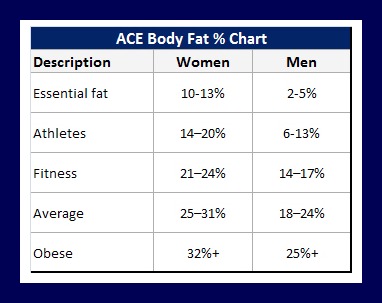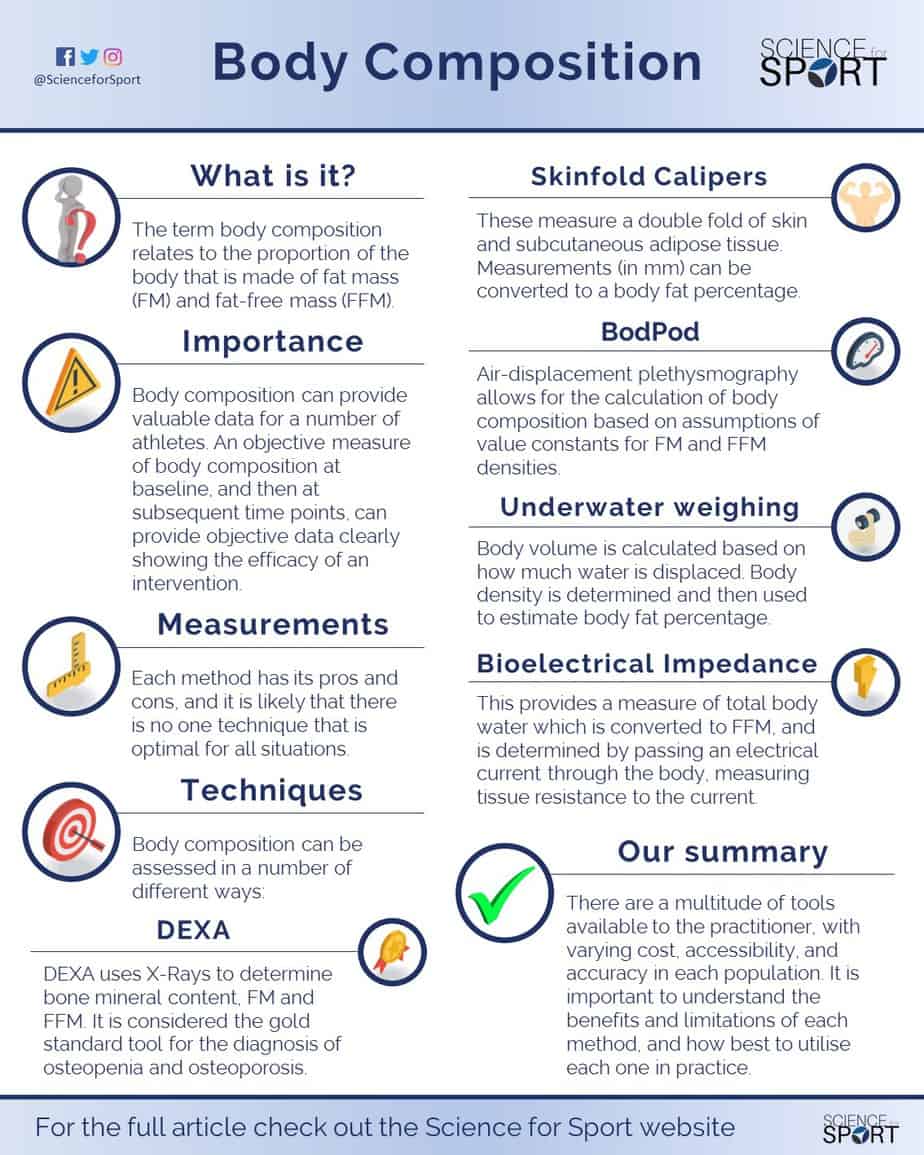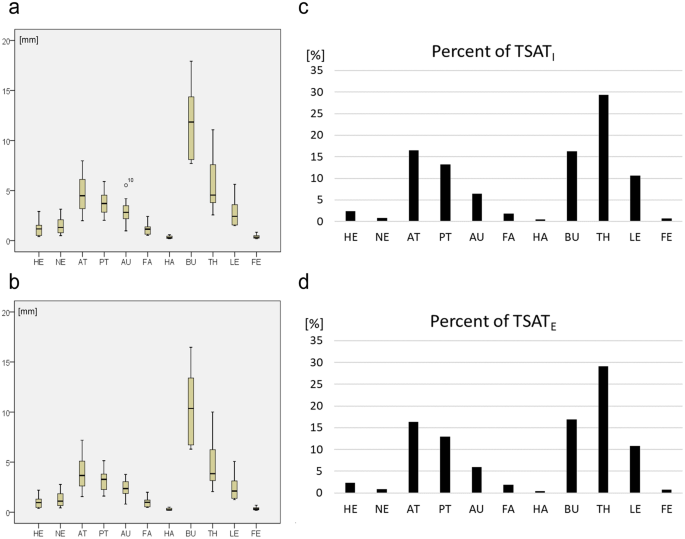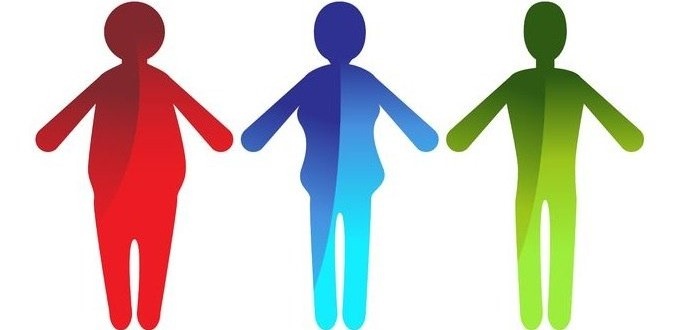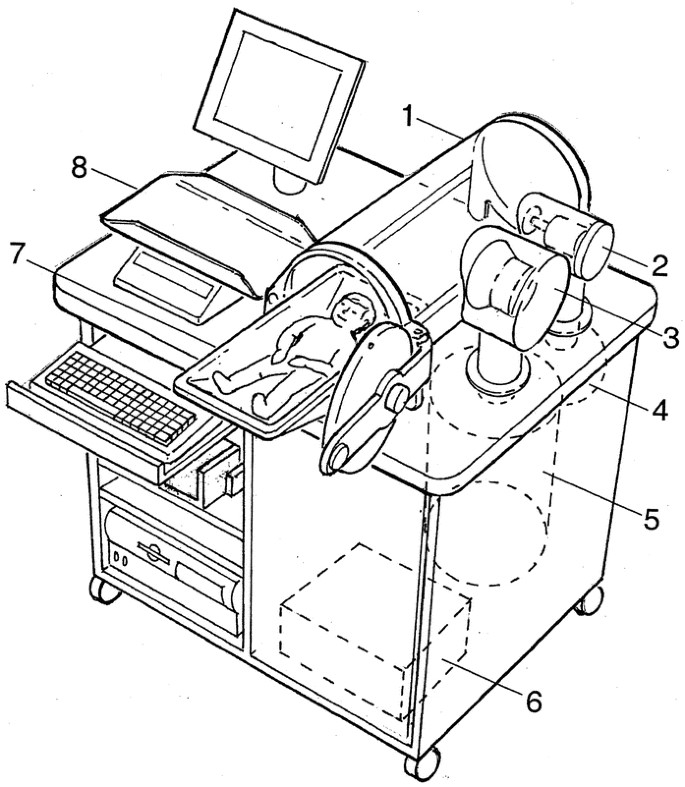Measurements are taken at either 3 or 7 different sites on the body. Volume is measured by the bod pod.

3 Ways To Dramatically Improve Your Body Composition In 2018
Current body composition measurement techniques. There are various ways to measure your body composition. Bioelectrical impedance runs a small current of electricity through the body to gauge body composition. Resistance to the current from water is a function of how hydrated your body is and is correlated with your body fat. Body composition measurement methods are continuously being perfected. Simple ways include tracking the circumference of body parts and taking progress pictures. The method relies on the currents to easily permeate a cells membrane.
We know the density of fat muscle and bone and water. Ongoing efforts involve multisegmental and multifrequency bioelectrical impedance analysis quantitative. Many techniques are available for body composition assessment which range from simple indirect measures to more sophisticated direct volumetric measurements. This blog outlines the nine types of body compositions and how they can be measured here. The pod measures the volume of air you displace allowing the bod pod to measure your overall density. Body composition measurement methods are continuously being perfected.
Ongoing efforts involve multisegmental and multifrequency bioelectrical impedance analysis quantitative magnetic resonance for total body water fat and lean tissue measurements imaging to further define ectopic fat depots. Skinfold calipers measure the thickness of your subcutaneous fat the fat underneath the skin at certain body locations. Since the density of an object in this case your body equals mass divided by volume we know mass equals your body weight. Hydrostatic weighing underwater weighing a method of measuring body composition whereby the subject is submerged into a tank of water and body composition is determined based on total body density using archimedes principle of displacement the weight of displaced fluid can be found mathematically. Some of the methods that are used today include anthropometry tracer dilution densitometry dual energy x ray absorptiometry air displacement plethysmography and bioelectrical impedance analysis. Available techniques allow for the measurement of fat fat free mass bone mineral content total body water extracellular water total adipose tissue and its subdepots visceral subcutaneous and intermuscular skeletal muscle select organs and ectopic fat depots.
Ongoing efforts involve multisegmental and multifrequency bioelectrical impedance analysis quantitative magnetic resonance for total body water fat and lean tissue measurements imaging to further define ectopic fat depots. Ihealths scales are one way to measure body composition.
